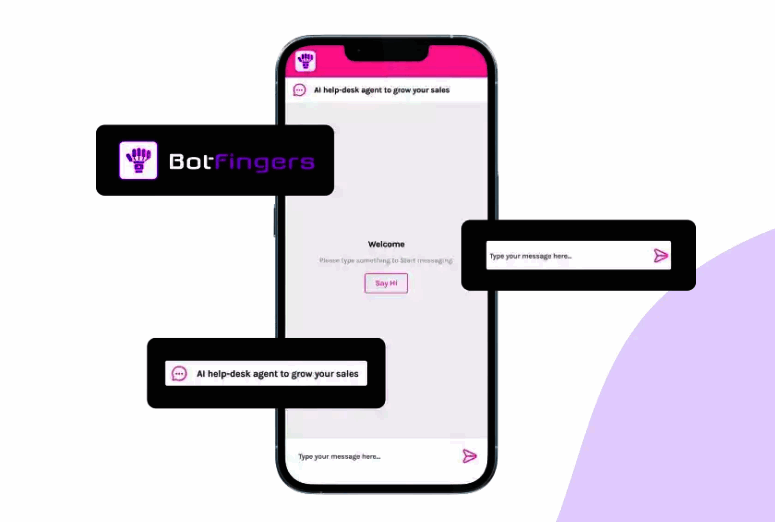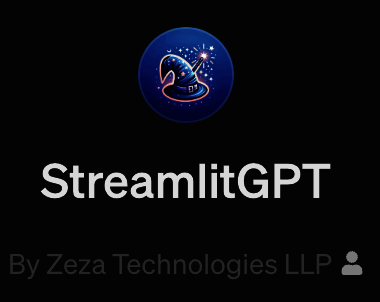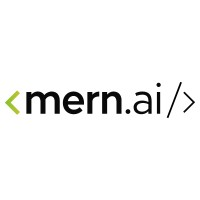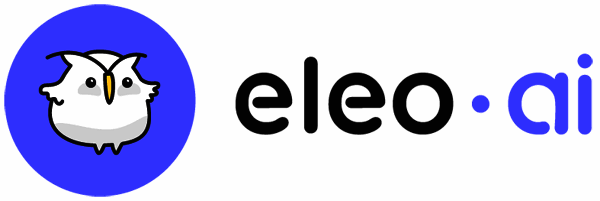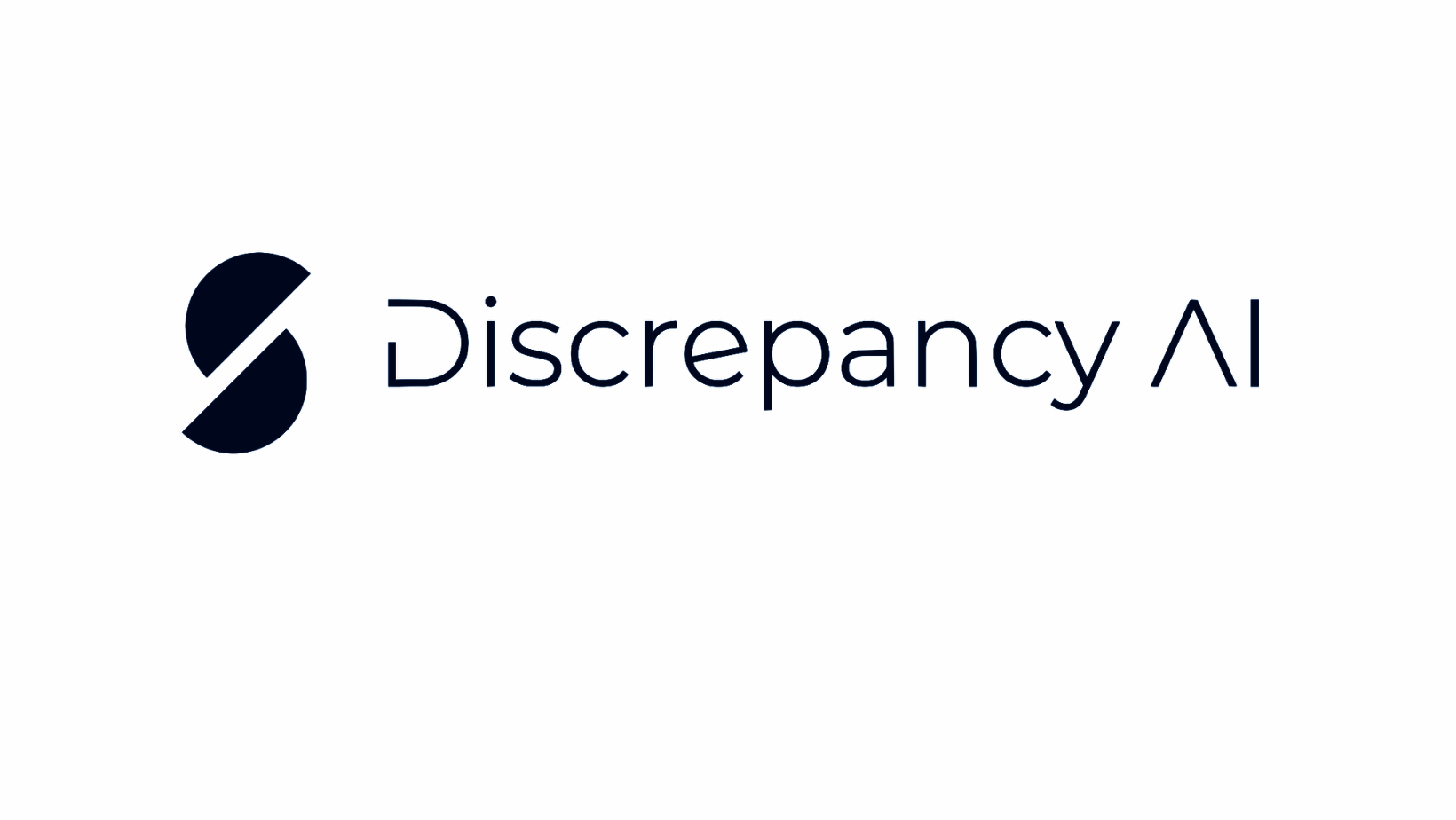Yes, most AI development platforms are designed to be accessible across multiple devices and platforms. These platforms typically offer web-based access as well as downloadable software for various operating systems such as Windows, MacOS, and Linux. This allows developers to work on their projects seamlessly regardless of their device or preferred platform. Some platforms also offer mobile apps for on-the-go development.
List of 20 Best AI Development Platform
Creyoface is an innovative no-code platform designed to empower businesses in creating AI chatbots without the need for programming skills. Its intuitive interface makes chatbot development easy and efficient, allowing businesses to elevate their cus...Read More Creyoface
MindStudio is the revolutionary software that is raising the bar in the industry. Utilizing cutting-edge technology, MindStudio offers game-changing solutions that enhance productivity and innovation. Our innovative methods challenge the status quo,...Read More MindStudio
ChatGPT Clone - AIOC, a groundbreaking software that empowers businesses to craft their own virtual assistant for seamless and dynamic conversations. Utilizing cutting-edge AI technology, AIOC offers tailored and captivating interactions for all busi...Read More ChatGPT Clone - AIOC
Noodl is a low-code solution powered by AI for rapid development. Ideal for startups, agencies, and enterprises, Noodl allows you to bring your innovative ideas to life with unmatched speed and endless possibilities. Design and build any web applicat...Read More Noodl
Flowise - a highly adaptable and effective low-code platform that allows you to easily create customized LLM orchestration flows and intelligent AI agents. With our intuitive drag-and-drop interface, seamless API integration, and pre-made templates,...Read More Flowise
Paperspace solution for AI developers. This innovative platform offers a seamless and customizable environment for creating, training, and deploying models with ease. With its user-friendly interface and cost-effective GPU options, Paperspace streaml...Read More Paperspace
D-ID AI Video is a video creation platform powered by revolutionary generative AI technology. With our state-of-the-art Creative Realityâ„¢ Studio, effortlessly produce realistic videos and talking avatars at the click of a button. Take advantage...Read More D-ID AI Video
Teachable Machine is a platform that empowers individuals to create advanced machine learning models without any coding knowledge. With its intuitive interface and real-time feedback, Teachable Machine is an ideal option for teachers, students, and A...Read More Teachable Machine
Kellton, the go-to software for all your digital transformation needs. Empowering industries with innovative solutions and unparalleled value through technology, Kellton is your ultimate partner in achieving business growth and limitless opportunitie...Read More Kellton
StreamlitGPT is a tool for quickly transforming your ideas into interactive web applications. With its effortless prompt-to-live process, you can effortlessly bring your vision to reality in just three easy steps. With StreamlitGPT, you can streamlin...Read More StreamlitGPT
MacCopilot is a AI assistant for optimizing your daily tasks. With its natural interaction style and advanced technologies like OpenAI GPT-4o and ClaudeAI 3.5 Sonnet, it allows for seamless communication with your screen content. Streamline your work...Read More MacCopilot
QuickBooks Online, the premier accounting software for entrepreneurs and business owners. Streamline your financial management with its intuitive interface, top-notch security measures, and cutting-edge features such as Online bank connectivity and W...Read More QuickBooks Online
RagaAI the AI testing solution built to elevate the creation of advanced AI systems. Our revolutionary platform offers automated testing that identifies any potential concerns, including data biases or shifts, prior to deployment. This simplifies the...Read More RagaAI
Midgenie is tool designed for efficient video dubbing in any language. Ideal for content creators, businesses, and production companies, it also offers the ability to generate videos from written text. Enhance the reach and effectiveness of your vide...Read More Midgenie
NextCaptcha is a solution for hassle-free captcha solving. Our cutting-edge software is compatible with all popular captcha types like reCAPTCHA v2, v2 Enterprise, v3, mobile, and FunCaptcha. Say goodbye to manual solving and let NextCaptcha handle t...Read More NextCaptcha
mern.ai - chat platform that utilizes cutting-edge AI technology to effortlessly create full-stack apps. Enjoy real-time previews and complete control in Code mode. Simplify deployment with one-click publishing and automatic GitHub integration. Effic...Read More mern.ai
Eleo.ai is a platform that revolutionizes your content creation and engagement with your audience. By effortlessly merging text, concepts, visuals, and chatbots, Eleo streamlines your workflow and sets you apart from your rivals. With round-the-clock...Read More Eleo.ai
AI Assistant is a virtual assistant driven by the power of artificial intelligence. This innovative program is created to boost both personal and professional productivity by providing customized support, automating tasks, and increasing efficiency...Read More AI Assistant
Discrepancy AI is a software that harnesses the power of advanced artificial intelligence to identify discrepancies and errors in PDF legal documents. By conducting comprehensive reviews of contracts, files, and other important documents, this powerf...Read More Discrepancy AI
X-Me - your ultimate solution for effortlessly creating AI avatars. With our easy-to-use platform, you can quickly and affordably bring your avatars to life. And as a bonus, enjoy free trials and become a part of our lively Discord community, where y...Read More X-Me
Learn More About AI Development Platform
- What Is Ai Development Platform?
- What Are the Recent Trends in AI Development Platform?
- Benefits of Using Ai Development Platform
- Important Factors to Consider While Purchasing Ai Development Platform?
- What Are the Key Features to Look for in Ai Development Platform
- What Are the Key Features to Look for in Ai Development Platform?
- How Much Time Is Required to Implement Ai Development Platform?
- What Is the Level of Customization Available in Ai Development Platform?
- Which Industries Can Benefit the Most from Ai Development Platform?
- Conclusion
What Is Ai Development Platform?
An AI development platform is a program or toolset that allows organizations and developers to design and deploy artificial intelligence solutions. These platforms offer a complete collection of tools, frameworks, and libraries to enable developers create intelligent applications that can learn, adapt, and improve over time. At its foundation, an AI development platform combines data processing, mathematical algorithms, and machine learning approaches to evaluate big datasets and generate precise predictions.
This enables firms to automate repetitive operations, make data-driven choices, and derive useful insights from their data. Some important aspects to look for in an AI development platform are strong data management capabilities, compatibility for several programming languages, and an easy-to-use interface. The platform should also include a variety of APIs and SDKs for seamless interaction with current systems and applications. Furthermore, the platform should use strong security measures to secure sensitive data.
Because AI research includes dealing with enormous datasets and complicated algorithms, it is critical to have robust security mechanisms in place to avoid data breaches. When selecting an AI development platform, it is critical to evaluate your unique business requirements and the sort of AI project you intend to undertake. Different platforms provide varying levels of capability, scalability, and customization. Therefore, it is critical to properly explore and analyze the platform's capabilities before making a selection.
What Are the Recent Trends in AI Development Platform?
The usage of AI technology across sectors has increased dramatically in recent years, making it one of the fastest-growing disciplines in the digital industry. As organizations want to remain ahead of the competition and simplify their processes, they are increasingly turning to AI development platforms to create intelligent solutions tailored to their individual requirements.
One of the most significant developments in the AI development platform industry is a growing emphasis on the democratization and accessibility of AI technologies. While conventional AI creation required coding skills and extensive technical knowledge, newer platforms provide user-friendly interfaces and pre-built modules, allowing non-technical people to design their own AI models.
This trend has enabled small and medium-sized organizations to use the potential of AI without the requirement for a specialized staff of engineers. Another notable industry trend is the proliferation of open-source AI development platforms. Open-source platforms provide developers access to a large community of contributors, libraries, and resources, allowing them to create complex AI solutions without beginning from zero.
This tendency has also encouraged collaboration and creativity among the AI development community, resulting in quicker progress in the area. Another key trend is the integration of AI development platforms with cloud services, which provides more scalability and flexibility in implementing AI systems. Cloud-based AI systems provide on-demand access to resources, removing the need for costly hardware expenditures and allowing organizations to grow their AI applications as needed.
The incorporation of natural language processing (NLP) capabilities into AI development platforms is also increasing. NLP allows machines to understand and process human language, making it an essential component in conversational AI solutions like chatbots and virtual assistants. This tendency is especially pertinent in professions like customer service and healthcare, where human contacts are important.
Finally, AI development platforms are becoming more specialized, with several concentrating on certain sectors or use cases. There are AI systems that are specifically designed for financial services, healthcare, retail, and other industries. This trend enables organizations to select a platform that best suits their unique needs and sector, resulting in more efficient and tailored AI solutions.
Benefits of Using Ai Development Platform
AI development platforms are sophisticated tools that let corporations and developers build, test, and deploy artificial intelligence applications. These platforms offer a simplified and effective process for creating and implementing AI solutions, with advantages such as greater productivity, shorter time-to-market, and improved accuracy.
In this buyer's guide, we will look at the main benefits of adopting AI development platforms, allowing you to make an informed decision when selecting the best platform for your firm.
1. Increased Productivity: One of the most significant advantages of employing an AI development platform is its capacity to enhance productivity. These platforms provide developers a collection of pre-built models, libraries, and tools that can be readily incorporated into their applications, minimizing the time and effort necessary to create AI solutions from scratch. This allows developers to focus on the key business logic and speed up the development process, enhancing productivity.
2. Shorter Time-to-Market: AI development platforms provide a quicker and more efficient path to market for AI applications. Pre-built models and tools enable developers to swiftly prototype and test their ideas, allowing them to create products and services in less time. This speed-to-market advantage is critical in today's fast changing business world, when being first to market can mean a big difference in success.
3. Improved Accuracy: AI development platforms are intended to assist developers in creating accurate and trustworthy AI solutions. These platforms use complex algorithms and machine learning techniques to process massive volumes of data and uncover patterns and insights that people may not see. By using the potential of AI, developers may increase the accuracy and performance of their apps, resulting in improved business outcomes.
4. Customizability and Flexibility: Each organization has distinct requirements, and AI development platforms provide the flexibility to meet these demands. These platforms enable enterprises to tailor their AI solutions based on their individual use cases, industries, and data sources. This flexibility also allows firms to expand their AI solutions as their needs change, rather than having to start from zero.
5. Cost-Effectiveness: AI development platforms may be an affordable alternative for firms wishing to integrate AI into their operations. These platforms minimize the need for enterprises to invest in expensive hardware, infrastructure, and AI expertise by providing all of the tools and resources required to create AI solutions in one location. This not only lowers expenses, but also allows organizations of all sizes to harness the potential of AI.
Important Factors to Consider While Purchasing Ai Development Platform?
Purchasing an AI development platform is an important decision for any corporation that wants to implement artificial intelligence into their business operations. With so many alternatives available, it can be difficult to select the appropriate platform for your organization. To enable you to make an educated decision, Here are some critical aspects to consider when selecting an AI development platform:
1. Scalability: The platform's scalability is an important issue to consider. As your company expands, your AI requirements will change, so investing in a platform that can easily scale up or down can save you the trouble of switching platforms in the future.
2. Data Management: A strong AI development platform must have effective data management capabilities. This comprises data integration, cleaning, and transformation to guarantee that the data used to train AI models is accurate and high quality. It should also be able to manage vast amounts of data to enable complicated AI algorithms.
3. Pre-built Models and Algorithms: Look for a platform that provides a library of pre-built AI models and algorithms that can be quickly incorporated into your apps. This not only saves time, but also serves as a strong platform for developing more complex AI applications.
4. Customization Options: Each organization has unique AI demands and requirements. A decent AI development platform should have customization options, allowing you to adjust it to your unique company requirements. This guarantees that the platform can adapt to your specific data and use scenarios.
5. User-Friendly Interface: The platform should offer a simple interface that allows developers and data scientists to create and deploy AI models. Look for a platform that supports drag-and-drop, visual workflows, and other features that make the development process easier.
6. Deployment alternatives: Consider the platform's many deployment alternatives, including on-premises, cloud, and hybrid. Choose the one that is compatible with your company's IT infrastructure and security needs.
7. Support and Maintenance: A reputable AI development platform should have a dedicated support staff that give frequent upgrades and maintenance. It should also contain a robust knowledge base and resources for troubleshooting and support.
8. Cost: Finally, make sure the platform is within your budget. Some platforms have multiple pricing levels based on use and functionality, so select the one that offers the greatest value for your money.
What Are the Key Features to Look for in Ai Development Platform
When choosing an AI development platform for your organization, there are a few crucial elements to look for to guarantee that you are making an educated and useful choice.
1. Machine Learning Capabilities: One of the most significant characteristics to look for in an AI development platform is machine learning capability. This includes the platform's capacity to analyze and comprehend vast volumes of data, find trends, and constantly improve performance in response to new data.
2. Customization Options: Each organization has distinct requirements and ambitions, and a solid AI development platform should provide customized solutions to fulfill those requirements. This might include the ability to tailor algorithms, interact with certain data sources, and personalize the user experience.
3. Natural Language Processing (NLP): With the growth of chatbots and virtual assistants, NLP has become an indispensable tool in AI development platforms. Look for a platform with strong NLP skills, particularly the capacity to interpret and reply to natural language inquiries in different languages.
4. Scalability and Performance: As your company expands, so will its data and AI requirements. When selecting a platform, examine its scalability and performance characteristics to ensure that it can manage growing data volumes while continuing to offer accurate and timely results.
5. Data Security: Given the sensitive nature of the data utilized in AI, it is critical to choose a platform with strong security measures. Encryption, safe access restrictions, and proactive monitoring are all features that may help protect your data.
6. User-Friendly Interface: A user-friendly interface is critical for any AI development platform since it enables non-technical team members to efficiently use the platform. Look for a platform with a clear, intuitive UI that allows for easy navigation and smooth connection with your existing tools.
7. Support and Training: Even with a user-friendly platform, your staff may want assistance and training to effectively exploit its capabilities. Look for suppliers who give extensive support and training to help your team get the most out of the platform.
8. Integration Capabilities: An AI development platform should have the ability to effortlessly connect and interact with your existing systems and tools. This involves connecting with databases, CRMs, and other data sources to offer a complete picture of your business activities. When selecting an AI development platform, consider these essential elements to guarantee that you are investing in a platform that fulfills your unique business goals and delivers value for your firm.
What Are the Key Features to Look for in Ai Development Platform?
Businesses require AI development platforms to fully leverage the power of artificial intelligence in their operations. These platforms offer a full collection of tools and resources for developing, testing, and deploying AI applications, making them a must-have investment for firms seeking to stay competitive. One significant reason firms use AI development platforms is to improve efficiency and productivity.
AI allows organizations to automate operations that would have taken hours for a human to do, saving them important time and resources. For example, adopting AI chatbots may drastically cut customer care response times, leading to a better customer experience. Furthermore, AI development platforms let organizations obtain important insights from their data. AI systems can evaluate enormous volumes of data in real time, delivering important insights and assisting organizations in making educated decisions.
This is especially important in fields like banking and marketing, where data is critical to decision-making. AI development platforms also provide scalability, allowing firms to respond swiftly to changing market demands. As AI algorithms learn and improve over time, organizations may simply upgrade and integrate new features to meet market demands without requiring substantial recoding. Another significant advantage of employing AI development platforms is cost efficiency.
Businesses may save money on labor by automating procedures and increasing efficiency, freeing up resources for more critical operations. Furthermore, many platforms have affordable price models, making it possible for organizations of all sizes to integrate AI into their operations. Finally, AI development platforms help firms stay ahead of the curve and compete in a continually changing industry.
With AI becoming more widespread across a variety of industries, investing in an AI development platform guarantees that businesses can stay up with technical breakthroughs while also meeting customer demand.
How Much Time Is Required to Implement Ai Development Platform?
The time required to establish an AI development platform is determined by several factors, including the project's complexity, data readiness, and team skill. However, completely implementing an AI development platform might take anything from a few weeks and many months. The project's complexity is one of the most important factors in determining implementation time.
This covers the sorts of AI models and algorithms that must be built, the volume of data to be handled, and the level of customisation necessary. The AI development platform may take longer to install as the project becomes more sophisticated. Another key thing to consider is data readiness. AI models rely on a vast amount of high-quality data to make accurate predictions and conclusions.
If the data has not yet been categorized and purified, more time may be required to prepare it for usage in the AI development platform. The team's experience is also vital in the implementation phase. If the team has previous expertise with AI development and is familiar with the selected platform, the implementation time may be reduced.
However, if the team is new to AI development or the platform itself, more time may be required for training and learning. It is also worth noting that implementation times may range amongst AI development platforms. Some platforms may provide user-friendly interfaces and pre-built models, making it quicker and easier to get started.
Others may require more technical expertise and specific code, which might lengthen the implementation process. In summary, implementing an AI development platform can take anywhere from a few weeks to several months, depending on the project's complexity, data readiness, and team skill. Buyers must carefully examine their project requirements and select a platform that corresponds with their aims and capabilities to guarantee a successful and timely deployment.
What Is the Level of Customization Available in Ai Development Platform?
When it comes to building artificial intelligence (AI), a customized platform is essential for firms seeking to produce unique and effective solutions. AI development platforms include a number of tools and capabilities that may be customized to meet the particular requirements of each project. The level of customization accessible in an AI development platform varies based on the vendor, but these platforms often allow a significant degree of freedom.
This implies that users have a variety of alternatives for developing and deploying AI models that are specific to their organization. Some frequent customization features in AI development platforms include the ability to design and fine-tune algorithms, alter parameters and inputs, and select from a library of pre-built models.
These platforms also provide the ability to deal with a variety of data kinds and sources, resulting in more accurate and focused AI solutions. Furthermore, AI development platforms frequently provide a library of pre-built tools and APIs that can be changed and incorporated into current systems, allowing customers to create AI solutions that are personalized to their individual business needs.
This degree of personalization not only makes the development process more efficient and easy, but it also leads to more effective and personalized AI solutions. When selecting an AI development platform, consider the amount of customisation available. This ensures that the platform matches your company's particular requirements and enables the development of highly customized and successful AI solutions.
By carefully examining the customisation possibilities, organizations can guarantee that they are investing in a platform that will provide major benefits and breakthroughs to their AI development initiatives.
Which Industries Can Benefit the Most from Ai Development Platform?
Industries from many industries are continuously looking for ways to use technology improvements to simplify operations and achieve a competitive advantage. With artificial intelligence (AI) developing as a game changer in the digital world, businesses are looking into the possibilities of AI development platforms to help them grow and succeed. But which sectors might actually profit from these platforms? Let's have a closer look.
1) Healthcare: The healthcare business is a hotbed of complicated and sensitive data, making it an ideal choice for AI development platforms. These systems can assist in evaluating patient data, recognizing trends, and generating accurate predictions for diagnosis and therapy. AI-powered medical equipment and systems can also help with real-time monitoring of vital signs, which improves patient care and results.
2) Retail: The e-commerce growth has prompted the retail industry to use AI development platforms in order to better understand consumer behavior and preferences. These systems may analyze client data to make tailored product suggestions, optimize prices, and even automate some operations, all of which lead to increased customer happiness and retention.
3) Banking and Finance: AI development platforms provide limitless prospects in the banking and finance industries. AI has several uses in this business, including risk assessment and fraud detection, algorithmic trading, and personalized wealth management. These systems may also automate regular processes, freeing up resources for more complex decision-making.
4) Manufacturing: In the manufacturing business, AI development platforms may significantly enhance efficiency and reduce costs. These platforms can evaluate production data to find areas for improvement and forecast equipment breakdowns, avoiding costly downtime. They can also help with the installation of smart factories and supply chain management systems.
5) Transportation: AI development platforms are transforming the transportation business by analyzing massive volumes of data in real time. They can optimise routes, forecast traffic patterns, and improve road safety by recognizing and warning drivers to possible risks. Furthermore, these technologies can power self-driving cars, paving the way for a more efficient and environmentally friendly future.
Conclusion
To summarize, investing in an AI development platform is a wise decision for any organization seeking to stay competitive in the ever-changing world of technology. Buyers may confidently choose the platform that best meets their goals and budget by carefully examining pricing, features, integration, support, and security. It is critical to select a user-friendly and flexible platform that integrates seamlessly with current systems and provides a diverse set of technologies such as machine learning, natural language processing, and predictive analytics.
Furthermore, having a strong support structure and access to training materials may help firms realize the full potential of their AI platform. Furthermore, while choosing an AI development platform, it is critical to prioritize data protection and privacy. Buyers should extensively investigate each platform's security procedures and certifications to secure sensitive information and ensure compliance with industry requirements.
Finally, investing in an AI development platform may provide several benefits to a business, such as enhanced efficiency, more customer happiness, and better decision-making. By following this buyer's guide and carefully examining the various alternatives, organizations may choose the ideal AI platform to accelerate their operations into the future of technology.
AI Development Platform FAQ's
Can AI Development Platform Be Accessed Across Multiple Devices and Platforms?
Is Ai Development Platform Future-Proof and Adaptable to Emerging Technologies Like Ai, Blockchain or Iot?
Yes, AI development platforms are intended to be future-proof and adaptable to new technologies like as AI, blockchain, and IoT. These platforms employ powerful algorithms and machine learning approaches, allowing them to develop and adapt to the changing technological world.
As new technologies emerge, AI development platforms will be able to effortlessly incorporate them, allowing businesses to remain ahead of the competition and maximize the promise of these technologies.
Is There a Free Trial Offered to Assess Ai Development Platform Before Committing?
Yes, many AI development platforms provide a free trial period in which consumers may evaluate their platform before committing to a subscription. This allows consumers to test the platform's features, functions, and user interface to see if it satisfies their requirements. It is an excellent chance for people and organizations to examine the platform's potential and make an informed decision.
Does AI Development Platform Offer Data Security Features and Meet Regulatory Compliance Standards?
Yes, AI development platforms include data security measures and assure compliance with regulatory requirements. To secure sensitive data, these platforms include encryption, access limits, and other security measures. They also include elements that assure compliance with legislation like GDPR and CCPA. AI development platforms also undergo frequent security assessments and upgrades to ensure data protection and regulatory compliance.
Can Ai Development Platform Integrate Seamlessly with Existing Tools and Platforms?
Yes, AI development platforms are meant to interact seamlessly with existing tools and platforms, increasing efficiency and streamlining the development process. These platforms leverage APIs and other connections to effortlessly interface with popular technologies like as cloud computing, data analytics, and project management software.
This ensures that developers may use their existing tools and expertise to include AI capabilities into their applications. This not only saves time and resources, but also enables a more thorough and efficient development process.



